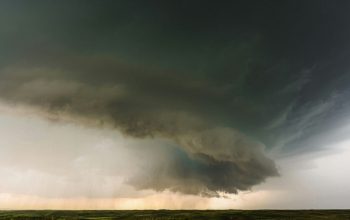One of the most common partisan attacks from an out of power political party is to point at the problems of the day with one hand, and point at the other party (or its highest profile members) with the other. You know what I'm talking about, we see it all the time: the Blame Game.
When playing the Blame Game politicians (especially those whose party is out of power) try to make things out to be simple. We have these problems, they say. The other party is in power, they say (often, pointing at the President from that other party). So therefore, they say, the current problems are the party in power's fault (ie, the current President's fault). It's that simple, they suggest. So give us the power back, they say, and we'll fix it, they promise.
And you know, sometimes, it actually is that simple. Sometimes.
So, how, at any given time, can you know if it just so happens to actually BE that simple right then? How can you know whether to believe them or not, when they point and say, essentially, 'blame them?
Fortunately, there is a simple way to answer those questions. Just figure out the causes of the problems in question, and when they first happened. Then figure out if that was before or after the people currently in power took office.
For example, let's say some arsonists were to light your house on fire. At the moment the arsonists would be pouring gasoline on your porch and throwing molotov cocktails through your windows, they would be in control of whether your house was on fire or not. They would be in power, so to speak. But then the Fire Department would show up, and take control of the whole burning house situation, and put the fire out. And then they would be in power.
Once the fire was out, you'd be left with a half burned home, and smoke damaged and water logged belongings. Naturally, you'd be upset about that. And you'd know that the firefighters were certainly not to blame – clearly the arsonists would be to blame. Even though the Firefighters were last in control.
That would be clear to you because in our personal lives, things that are happening directly to us, or directly in front of us. We're there, in person, dealing with it. So we've got a good perspective on it.
But in politics, it's not at all uncommon for one party to get voted out of party over the mess they made of things – and then before long they're pointing their fingers at the party that got voted in. Blaming their replacements for their own mess, even as their replacements work to clean it up. It's an all too common tactic, to hurt ordinary people for the benefit of big money donors – and then, after getting booted out of power over it, to turn around and weaponize the people's anger and pain against their political opponents. Who just got voted into power, and are still working to clean up the mess their naysayers made. It's as if the arsonists were pointing their fingers at the firefighters and saying, 'look what a mess those firefighters made of your house. Give us arsonists our matches back and we'll fix it.'
They take advantage of the distance, and the confusion, and the noise, to muddy our perspective. They play on our anger, our doubts, our fears, and our prejudices to pit us against each other; and even against our own best interests.
Much too often, that works. Which is why we see that tactic, over and over again. Election after election. But if you just follow the timeline, to figure out who made the mess, and who's trying to clean it up, it doesn't have to work on you. Because as a voter, winning the Blame Game means not being played, by those engaging in it.
Here in the Opinion Section of our little newspaper, we publish a variety of points of view. This is just a little something I hope you'll all keep in mind while reading them.







